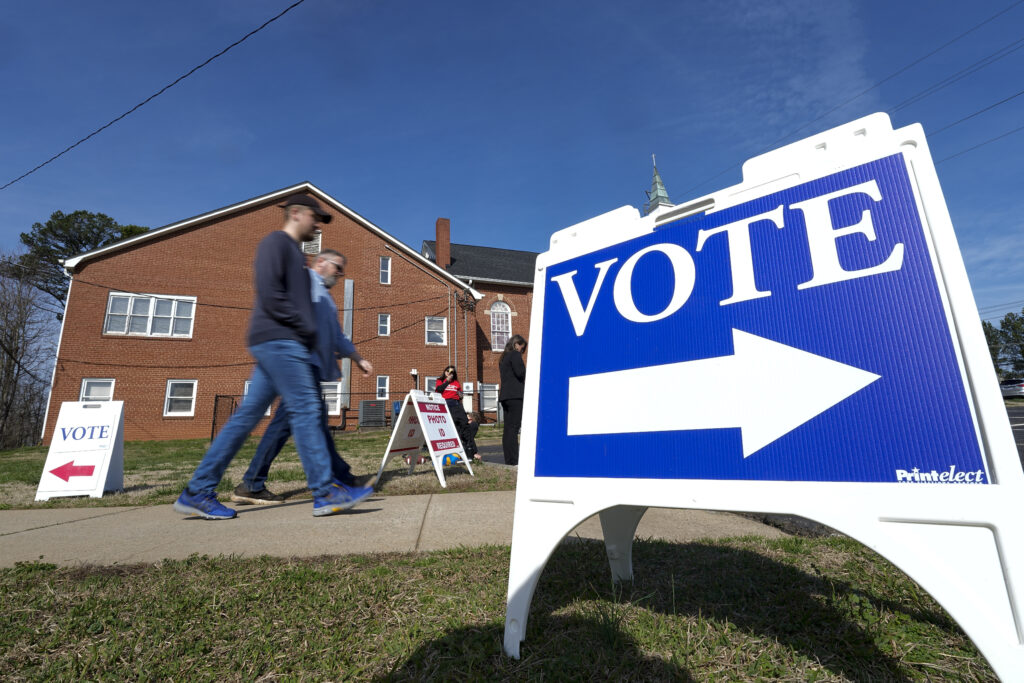The Democratic Justice Who Paved the Way for Jefferson Griffin in North Carolina

On Nov. 8, 1994, Chief Justice Ernest Hornsby lost his seat on the Alabama Supreme Court by 262 votes. But Hornsby didn’t concede. Instead, he asked state courts to retroactively change election rules to count 2,000 additional ballots — and his colleagues on the high court agreed to do it.
But Hornsby’s attempt to overturn an election ultimately failed when the federal courts stepped in to order Alabama to count ballots under the rules that existed on Election Day.
That episode offers a case study for why the federal courts must again intervene to protect fair elections and stop politically motivated efforts to change the rules after the fact — this time in North Carolina.
Hornsby was a Democrat, backed by personal injury lawyers who represented injured workers and consumers. His opponent, Perry Hooper, was backed by big business, and he had political strategist Karl Rove running his campaign. (It was the first step to Rove helping to flip the court from all-Democrat to all-Republican.)
Before Hornsby joined the bench, he was a state legislator in the 1960s. In that role, he opposed a constitutional amendment proposed by racist Gov. George Wallace that would have allowed the governor to serve another term. State Senator Hornsby criticized Wallace’s allies for trying to end a filibuster against the amendment. He said, “Changing the rules in the middle of the game doesn’t ring true to the finest people that ever trod God’s earth.”
But a few decades later, after losing his re-election for Alabama Chief Justice, Hornsby argued that state courts should change the rules after the game was over. He argued that Alabama should count absentee ballots that didn’t conform to a state law that required the signatures of a public notary or two witnesses, in addition to the voter’s signature.
The all-Democratic Alabama Supreme Court agreed with Hornsby that it wasn’t clear whether the ballots should be counted. The state courts said that some counties had historically counted ballots that didn’t include the signatures, ruled for Hornsby, and ordered the 2,000 ballots to be counted.
The 11th U.S. Circuit Court of Appeals, however, blocked the process. The federal court took a closer look and found that those ballots had only been routinely counted in just one county. The 11th Circuit said that the factual basis for the state court’s statements was “erroneous.”
Nearly three million voters chose to keep Justice Riggs in power. They rejected Griffin’s partisan Republican campaign.
A panel of three judges, including two Democratic appointees, ruled that Equal Protection doesn’t allow the state to count mail-in ballots that didn’t conform to the signature mandate only in the challenged counties. On October 20, 1995, almost a year after he narrowly won, Hooper was finally sworn in as chief justice.
Hornsby’s party dominated the appellate courts in Alabama. And those courts were ready to retroactively change the rules to help him win. But the federal courts stepped in to protect the integrity of elections, as they had done before in the Deep South.
We may be on the precipice of something similar in North Carolina. In November, incumbent Supreme Court Justice Allison Riggs narrowly defeated Republican Jefferson Griffin, a win that held up after two recounts. But Griffin has been seeking to have around 60,000 votes thrown out because of incomplete voter registrations.
The North Carolina Court of Appeals ruled last Friday in favor of Griffin. Judges Fred Gore and John Tyson ordered election officials to notify 60,000 voters that their voter registrations were incomplete, and gave voters 15 days to complete their registrations if they want their ballots to count. The dissent called it “mass disenfranchisement.”
Riggs appealed the decision to the state Supreme Court, which put the ruling on hold while it considers the case again. But given how the justices have ruled on the case previously, it appears that a 3-3 deadlock is the best-case scenario for Riggs at the high court in Raleigh. If that happens, the Court of Appeals ruling would stand.
That would give Riggs one last option — one she has said she’ll use: the federal courts. The 4th U.S. Circuit Court of Appeals in Virginia declined to order certification of Riggs’ victory in February, but it said that it would step in if federal issues arise.
In recent years, the 4th Circuit has acted to protect voting rights in North Carolina. Around 10 years ago, the court struck down a 2013 voter suppression bill, finding that GOP lawmakers had used state data to target Black voters “with almost surgical precision.” Legislators, for example, had used state DMV data to craft a voter ID mandate that would disproportionately impact Black voters.
The lawyer who convinced federal courts to strike down the law was now-Justice Allison Riggs. Soon, Riggs will likely ask the same court to keep Griffin from stealing the election.
It’s past time for the federal courts to step in. The appellate courts in North Carolina, whose members have been elected in partisan races since 2018, are controlled by Republicans dedicated to preserving GOP power.
If they succeed in ousting Riggs, Republicans will have a 6-1 majority on the state supreme court. This will make it much harder for Democrats to retake the court in 2028, preserving the Republican legislature’s gerrymandered election districts for another decade.
Nearly three million voters chose to keep Justice Riggs in power. They rejected Griffin’s partisan Republican campaign. Now Griffin is trying to undo that decision. He wants his Republican friends to retroactively change the rules of the 2024 election and declare him the winner. Like the 11th Circuit in the Alabama case, the federal courts must protect democracy in North Carolina.
Billy Corriher is the state courts manager for People’s Parity Project and a longtime advocate for fair courts and progressive judges. As a Democracy Docket contributor, Billy writes about voting and election state court cases in North Carolina and across the country.